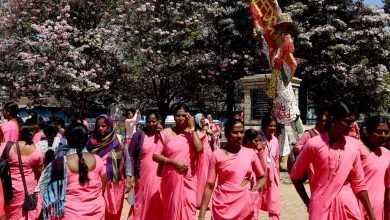Finance panel’s rare cash crunch

The Bengal government has directed rural bodies to clear pending electricity bills from the funds received from the 15th Finance Commission. The order has surprised many in administrative circles as the funds given by the constitutional body are primarily meant for the creation of assets.
A source at Nabanna said the directive was unprecedented as the rural bodies were asked for the first time to spend the funds meant for capital expenditure to pay electricity bills, which is essentially revenue expenditure.
Revenue expenditure is a short-term operating expense while capital expenditure is about the purchase or creation of assets.
“The local bodies can spend about 10 per cent of the untied funds received from the Finance Commission for administrative costs, including payment of electricity bills. But I can’t recall instances when the local bodies in Bengal used this fund to clear electricity bills, instead of taking up development projects,” said a senior bureaucrat.
According to him, the decision once again reveals the strained situation of the state exchequer.
Multiple sources said the government was forced to issue such a directive as local bodies had been facing trouble in running offices as their own revenue generation had dried up over the past few years following the administration’s decision of not levying any local-level taxes.
“The West Bengal State Electricity Distribution Company Limited recently wrote a letter to the state panchayat and rural development department secretary to convey that electricity bills worth Rs 350 crore were pending,” said a source.
The letter also mentioned that if the dues, accumulated over the past three years, were cleared, it would help the company not only secure central grants and assistance but also ensure uninterrupted power supply.
“In such a situation, the government decided to clear the dues of WBSEDCL. The rural bodies were asked to clear their due electricity bills from the funds of 15th Finance Commission, which are already in possession of the rural bodies,” said a government official.
Sources in the panchayat department have said nearly 60 per cent of the funds are earmarked for priorities like drinking water supply, rainwater harvesting and sanitation, while the remaining 40 per cent are untied, which means it can be spent by Panchayati Raj institutions — gram panchayats, panchayat samitis and zilla parishads — on local needs.
“Whether the rural bodies can use the untied funds for the payment of electricity bills is a matter of interpretation,” said a source.
Some officials, however, think electricity bill payment using the Finance Commission funds is unacceptable and it may create controversy and embarrass the government.
A senior official said the rural bodies used to generate their own revenue — by levying local-level taxes on buildings or markets and shops — to pay such bills or meet expenses required to run offices.
“To impose such taxes, rural bodies have to create by-laws and get them vetted at gram sabhas every year. But in the past 10 years or so, no gram sabhas were held and the local bodies did not create the bylaws as the government has been averse to the idea of imposing taxes on common people,” said an official.
















